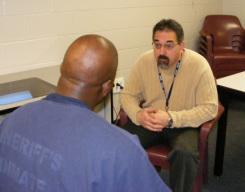Support Groups in the Church
How do “support groups” help church members who are struggling with addiction and other life issues?

-
A. “Support groups” are not a new idea for the Church — John Wesley’s “Rules for Small Groups,” written in 1816, is an outline that embodies “the Method” from which the name “Methodist” came. This method resulted in one of the greatest revivals the world has ever known. Believers gathered together in small groups, sharing honestly, becoming accountable to one another, asking probing questions, praying for one another with a deep knowledge of their mutual needs and struggles. Any believer can benefit from this type of gathering. It can be a tremendously healing and encouraging experience for those in recovery.
Support Groups in the Church Read More »





 And always, I felt inexplicably sad. Nothing made me happy. Most frightening of all, I made intricate preparations for my death. 1
And always, I felt inexplicably sad. Nothing made me happy. Most frightening of all, I made intricate preparations for my death. 1

 eating disorder odyssey, recovery included, in my book,
eating disorder odyssey, recovery included, in my book, 